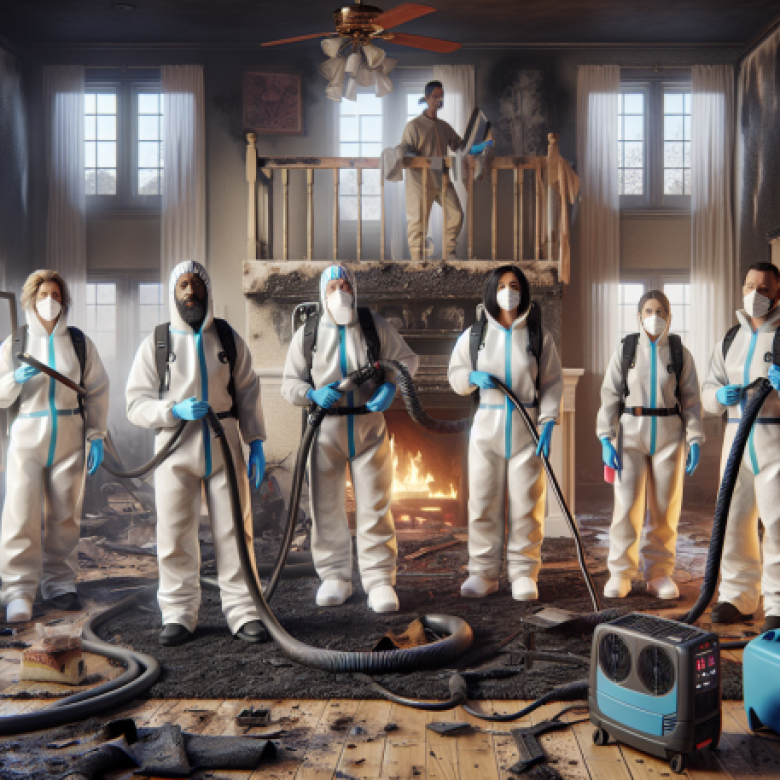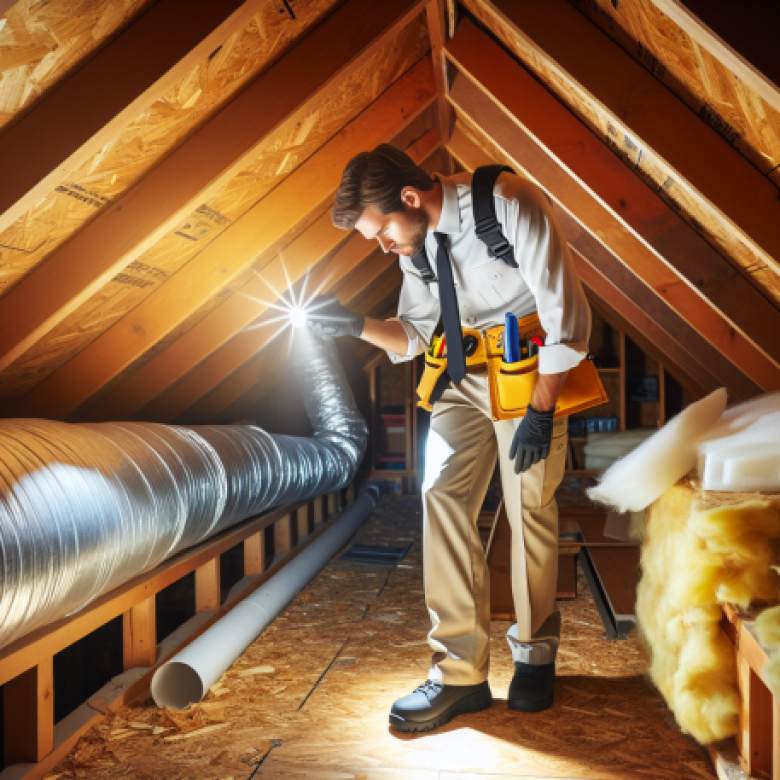**Maintaining Your Property After Restoration: Tips**
Have you recently restored your property and wondered how to keep it in top shape? Maintaining your property after restoration is crucial to ensure its longevity and prevent future damage. At Projekt Restoration, we specialize in water, fire, and mold restoration solutions, and we’re here to share essential tips for maintaining your property effectively.
After restoration, regular inspections, proper ventilation, and timely repairs are key to preserving your property’s condition. Implementing a maintenance schedule can help you catch potential issues early, such as mold growth or water leaks. Additionally, keeping your property clean and addressing any signs of damage promptly will save you time and money in the long run.
But these tips are just the beginning of what you need to know for effective property maintenance. To dive deeper into the best practices for keeping your restored property in pristine condition, let’s explore expert insights and actionable strategies that will empower you to protect your investment. Join us as we uncover the essential steps to ensure your property remains a safe and welcoming space for years to come!
Understanding the Importance of Property Maintenance Post-Restoration
Maintaining your property after restoration is essential for ensuring its longevity and preserving its value. Regular upkeep prevents minor issues from escalating into significant problems. For instance, neglecting maintenance can lead to water damage, mold growth, or structural deterioration. According to the National Association of Realtors, properties that are well-maintained can retain up to 10% more value than those that are not.
Furthermore, failing to address maintenance needs can result in costly repairs down the line. A study by the National Association of Home Builders indicates that homeowners spend an average of $3,000 annually on maintenance. This investment is crucial, as it helps avoid the pitfalls of neglect, which can significantly decrease property value.
Expert opinions emphasize that proactive maintenance is key. For example, regular inspections can identify potential issues early, allowing for timely interventions. Homeowners should consider services like water damage restoration and mold assessments to safeguard their investments. Ultimately, consistent property maintenance not only enhances safety but also ensures a sound financial future.
Regular Inspections: A Key Component of Maintenance
Regular inspections play a crucial role in maintaining your property after restoration. Homeowners should conduct various types of inspections, including structural, plumbing, and electrical assessments. Each type focuses on different aspects of your home’s integrity and functionality.
For structural inspections, check for cracks in walls, uneven floors, and signs of water damage. Plumbing inspections should include checking for leaks, water pressure issues, and proper drainage. Electrical inspections require examining outlets, circuit breakers, and any exposed wiring.
To streamline the process, use this checklist during your inspections:
- Inspect walls and ceilings for cracks or stains.
- Check windows and doors for proper sealing.
- Examine plumbing fixtures for leaks.
- Test smoke detectors and carbon monoxide alarms.
- Review electrical outlets and switches for functionality.
Aim to conduct these inspections at least twice a year. However, if you notice any unusual signs, perform an inspection immediately. Regular assessments help identify potential issues early, ensuring your home remains safe and functional. For more information on restoration services, visit our contact page or explore our calculator for estimating restoration costs.
Cleaning and Upkeep: Keeping Your Property in Top Shape
Establishing a cleaning schedule is essential for maintaining your property. For interiors, focus on high-traffic areas weekly, such as kitchens and bathrooms. Dust surfaces and vacuum carpets every week. Additionally, deep clean these spaces monthly. For bedrooms and living areas, a bi-weekly dusting and vacuuming routine suffices.
When it comes to exteriors, inspect and clean your outdoor spaces seasonally. Power wash driveways and patios in spring. Regularly check for debris in gutters, especially after heavy rains. This prevents water damage and keeps your property looking pristine.
Choosing the right cleaning products is crucial. For hardwood floors, opt for pH-neutral cleaners. Use gentle, biodegradable products for countertops and appliances. Always test new products on a small area first to avoid damage.
Seasonal maintenance tasks are equally important. Trim landscaping in early spring and fall. This promotes healthy growth and enhances curb appeal. Regular upkeep not only preserves your property but also increases its value. For more tips on restoration and maintenance, visit our contact page or explore our content cleaning services.
Addressing Minor Repairs Before They Become Major Issues
Identifying minor repairs early can save you time and money. Look for signs like small leaks, cracks in walls, or peeling paint. These issues often indicate underlying problems that require attention. Regularly inspect your property, especially after severe weather or changes in temperature.
When prioritizing repairs, consider both urgency and impact. For instance, a leaking pipe can cause significant water damage if left unattended. In contrast, a small crack in the wall may not need immediate action. Create a list of repairs, ranking them by how quickly they need to be addressed. This approach helps you manage your time and resources effectively.
Deciding whether to tackle repairs yourself or hire a professional can be tricky. Simple tasks, like patching small holes or tightening loose fixtures, are often manageable for homeowners. However, for more complex issues, such as extensive water damage or mold problems, it’s wise to consult a professional. They have the expertise to ensure the job is done correctly. For more information on professional help, visit our contact page or explore our calculator for estimating repair costs.
Landscaping and Outdoor Maintenance
Maintaining outdoor spaces significantly enhances both aesthetics and property value. A well-kept landscape creates a welcoming atmosphere and reflects pride in ownership. Regular lawn care is essential; mow your grass consistently to promote healthy growth. Additionally, fertilizing your lawn during the growing season can improve its vibrancy.
Tree trimming is another vital task. It not only maintains the shape of your trees but also prevents potential hazards from falling branches. Furthermore, pruning encourages new growth and enhances the overall appearance of your property.
Garden upkeep is equally important. Regular weeding and mulching help retain moisture and suppress unwanted plants. Seasonal landscaping tasks, such as planting seasonal flowers in spring or raking leaves in fall, contribute to the overall health of your outdoor space. These activities not only beautify your property but also protect your investment.
For more detailed guidance on restoration and maintenance, consider visiting our contact page or explore our calculator for estimating costs. Engaging in these practices ensures your property remains a source of pride for years to come.
Maintaining Systems and Appliances
To ensure your property remains in top condition, focus on key systems and appliances. Regular maintenance is essential for HVAC, plumbing, and electrical systems. For HVAC, change filters every three months and schedule a professional inspection annually. Plumbing should be checked for leaks and clogs biannually. Inspect electrical systems every year for frayed wires and faulty outlets.
Professional servicing offers significant advantages over DIY maintenance. Experts can identify potential issues early, preventing costly repairs later. Additionally, they possess the tools and knowledge to handle complex tasks safely. While DIY can save money, it often lacks the thoroughness of professional care.
Incorporating a maintenance schedule not only extends the lifespan of your systems but also enhances energy efficiency. For more information on how to maintain your property effectively, consider reaching out through our contact page. You can also explore our calculator for budgeting your maintenance costs. Prioritize these tasks to safeguard your investment and ensure a comfortable living environment.
Documenting Maintenance and Repairs
Keeping detailed records of all maintenance and repairs is crucial for property owners. First, it provides a clear history of the property’s condition. This documentation can be invaluable during future sales, as potential buyers appreciate transparency. Additionally, it serves as proof for insurance claims, ensuring you receive the coverage you deserve.
To help you get started, consider using a simple maintenance log template. Include columns for the date, type of maintenance, description of the work done, and costs incurred. For example:
| Date | Type of Maintenance | Description | Cost |
|————|———————|—————————-|——–|
| 01/15/2023 | Plumbing | Repaired kitchen sink leak | $150 |
| 02/10/2023 | Electrical | Replaced faulty outlet | $75 |
This log not only organizes your records but also highlights patterns in repairs. Consequently, it can help you anticipate future issues.
Moreover, thorough documentation can significantly streamline the claims process with your insurance provider. When you have a well-maintained record, you can quickly reference past repairs. This efficiency can expedite claims related to incidents like water damage or fire damage restoration. Ultimately, maintaining accurate records protects your investment and enhances your property’s value.
Preparing for Seasonal Changes
Preparing for seasonal changes is essential for maintaining your property’s integrity. Each season brings unique challenges that require specific maintenance tasks. For winter, ensure you winterize your plumbing to prevent freezing pipes. Insulate exposed pipes and check your heating system for efficiency.
As spring arrives, focus on spring cleaning. Clear gutters and downspouts to prevent water damage. Inspect your roof for any winter-related damage and address it promptly.
Summer demands attention to your landscaping. Trim trees and bushes to reduce fire hazards. Regularly check your air conditioning system to ensure optimal performance.
When fall approaches, prepare for heavy rains and potential storms. Clean and inspect your drainage systems to avoid flooding. Additionally, secure outdoor furniture and equipment to withstand strong winds.
By proactively addressing these seasonal tasks, you can protect your property from extreme weather conditions. Regular maintenance not only preserves your home but also enhances its value over time.
Engaging Professionals for Specialized Maintenance
When it comes to property maintenance, knowing when to hire professionals is crucial. Certain tasks require specialized skills and knowledge. For instance, roofing, electrical work, and plumbing should always be handled by experts. These areas involve safety risks and complex systems that can lead to costly mistakes if not managed properly.
Additionally, mold remediation and fire damage restoration are best left to trained professionals. They possess the right tools and expertise to ensure thorough and safe handling. Furthermore, engaging specialists can save you time and provide peace of mind.
To choose reliable contractors, start by seeking recommendations from friends or family. Online reviews can also offer insights into a provider’s reputation. Always verify their credentials and ensure they are licensed and insured. Requesting multiple quotes can help you gauge fair pricing. Finally, don’t hesitate to ask for references to assess their previous work quality.
For more information on specialized services, visit our contact page or explore our calculator for estimates.
Frequently Asked Questions (FAQs)
Frequently Asked Questions (FAQs)
What should I do immediately after restoration?
After restoration, inspect your property thoroughly. Look for any signs of lingering damage. Ensure that all repairs meet safety standards. If you notice issues, contact a professional for assistance.
How often should I perform maintenance checks?
Regular maintenance checks are essential. Aim for at least twice a year. This helps identify potential problems early. For example, check for mold growth in damp areas. If you need help, consider a mold assessment.
Can I handle maintenance myself?
Some tasks are manageable, like cleaning gutters or changing air filters. However, complex issues, such as water damage, require expert intervention. If you’re unsure, reach out to a professional for guidance.
What are the signs of water damage?
Look for discoloration on walls or ceilings. Musty odors often indicate hidden moisture. Additionally, peeling paint can signal water intrusion. If you suspect water damage, consult a water damage expert.
How can I prevent mold growth?
Maintain low humidity levels in your home. Use dehumidifiers in damp areas. Regularly inspect for leaks and fix them promptly. For persistent issues, consider professional mold removal services.
Feel free to reach out with any additional questions or concerns! Your property’s health is important.





